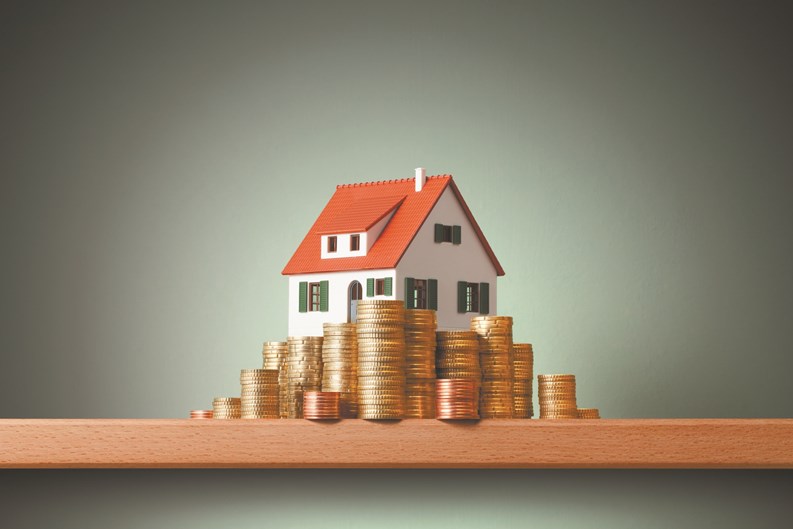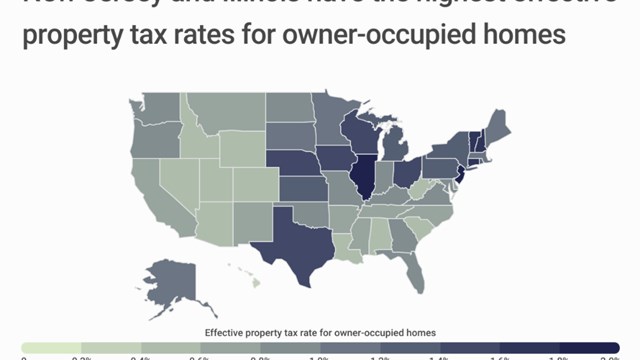Appreciation, and the profit that comes with it, is surely a major benefit of home ownership. But that profit does not come without a cost. You can’t hide from the tax collector, and sooner or later he or she will come looking for you to extract that cost, usually as a capital gain.
Active Versus Passive Income
The money we earn as income is divided into two categories: active and passive. Active income includes wages, tips, salary, and income from businesses in which we have material participation. Passive income is earnings an individual derives from investments, such as rental property, stocks, bonds, limited partnerships, or other enterprises in which they are not actively involved.
Put another way: money we earn while we are working is viewed differently than income we earn while we are sleeping, and they are treated differently for tax purposes. The IRS applies a different set of rates for passive and active income. Active income (the money from your job) is taxed at a higher rate than passive income (the money from your investments). One further distinction is whether that passive income from your investments is a result of a profit from ongoing business operations — like annual profit from a real estate investment or dividends on stocks — or a result of the sale of the investment at a profit over the original cost of the investment. That second case is known as a capital gain.
What Is a Capital Gain?
A capital gain is an increase in the value of a capital asset — like an investment or real estate — that results in a higher worth than the price you originally paid for it. The gain is realized when the asset is sold. A capital gain may be short term, defined as less than one year; or long term, defined as more than one year. The gain must be claimed on income taxes and is a taxable event. Stated simply, a capital gain is the profit from the sale of real estate or another investment. Under the tax act passed in 2017, there is no capital gains tax on the sale of investments for individuals or married couples in the 10 percent and 15 percent tax brackets. Those in the 25-35 percent tax brackets are subject to a capital gains rate of 15 percent on their taxable basis. If you purchase an investment — stocks or real estate, for instance — for $100,000, and then sell five years later for $200,000, you have a profit of $100,000 — and at 15 percent, a balance of $15,000 due the IRS.
Primary Residences
The U.S government has long used the tax code as a tool to increase both the incidence and viability of homeownership. Owning a home is often considered to be the cornerstone of ‘the American Dream.’ For that reason, capital gains resulting from the sale of a primary residence have been treated somewhat differently — and preferentially — then the gains from other passive investments, such as the sale of stock, bonds or investment real estate.
Up until the late 1990s, the capital gain from the sale of a home was potentially untaxed. Taxpayers were permitted to sell a home and reinvest the profit from that home into another home within 18 months without being subject to payment of capital gains taxes. They could continue to sell and reinvest as many times as they wanted without a limit on the dollars reinvested up to age 65, at which time they would have a one-time permanent exclusion of those capital gains. For many homeowners, this provision was the key to their financial planning and retirement structuring.
How Capital Gains Are Calculated
The bedrock for calculating capital gains on your unit is determining what your cost basis in the unit is. According to Karen Sackstein, a certified public accountant and partner at The Condo Queens, an accounting firm located in Fair Lawn, New Jersey: “Cost basis for co-op and condominium units is calculated on the original purchase price of the shares, or the unit, plus capital improvements for the entire period that the asset is held.”
Eliot Lebenhart, a partner at the accounting firm KVLSM, based in Woodbury, New York, explains how capital gains on a primary residence, including co-ops and condos, are calculated under the current tax law: “The sales price, minus commissions and other closing costs, minus your basis—purchase price plus capital improvements; the difference between the two is your capital gain.
“If this is a primary residence, and you are single, and have lived in the unit for two out of the last five years,” Lebenhart continues, “you can exclude $250,000 from capital gains taxes. If you are married and filing jointly, the exclusion goes to $500,000.” There is no longer any age where you get a permanent exclusion.
Keeping up your property will clearly help you keep taxes down later. For example, say you are single, and paid $400,000 for your apartment 15 years ago. Today, you sell it for $900,000, incurring $100,000 in closing costs. Your basis would be $900,000 minus that $100,000 in closing costs. Your cost basis in the property would be $400,000—$900,000 minus $100,000 minus the original $400,000 purchase price. Your exclusion would be $250,000, resulting in a taxable gain of $150,000. At the current 15 percent, your capital gains tax burden would be $22,500.
Now using the same example, let’s say that you did two $30,000 gut renovations of your kitchen and bathroom during that 15 years, for a total in capital improvements of $60,000. You would deduct that from your basis as well—$900,000 minus $100,000 in closing costs, and minus $60,000 in capital improvements for a taxable basis of $340,000, resulting in taxable gain of $90,000 and a tax of $13,500 — a savings of $9,000.
What Constitutes a Capital Improvement?
According to Sackstein: “A capital improvement increases your home’s value, while a non-eligible repair just returns something to its original condition. According to the IRS, capital improvements have to last more than a year and add value to your home, prolong its life, or adapt it to new uses. In a primary residence, none are tax deductible when paid, but capital improvements increase the basis, which affects capital gains upon sale.”
Alternatively, in a rental or investment property, repairs are deductible when paid, and capital improvements are depreciated over the asset’s useful life. Keep in mind that repairing your refrigerator will not affect your basis, but installing a new one will, as long as the new one is an improvement over the old one. A simple replacement is not the same as an upgrade, and could be exempted in the event of an audit. In the event of an audit, the IRS would require proof of capital improvement costs.
“On audit and only on audit,” says Lebenhart, “and truthfully, I’ve never seen an audit on the basis of a personal residence. What you have to show is receipts and proof of payment.” The lesson? Keep those receipts, because if you get audited, the proof is on you!
Co-op Versus Condo
The only area where there is a shade of difference in the treatment of co-ops versus condos in the calculation of capital gains is in how capital expenditures on the overall property may be treated. In a co-op where the ownership vehicle is shares in a corporation, capital improvements to the building such as a new boiler or roof may be treated as a capital improvement for the calculation of capital gains taxes on your unit—whether paid by special assessment or out of the building’s reserve fund, because of the way those costs are accounted for to the shareholders. In a condominium, those costs are calculable as part of the unit’s cost basis only if the work is paid for through special assessment.
While the IRS is a federal agency and therefore uniform across the country, navigating the tax code and making sure all your i’s are dotted and t’s crossed can sometimes be complex at best, and confusing at worst. So regardless of your tax bracket, it’s always a good move to consult your accountant for further clarification, and to get the most out of the law and the special treatment it affords homeowners.
A J Sidransky is a staff writer/reporter for The Cooperator, and a published novelist.







Comments
Leave a Comment